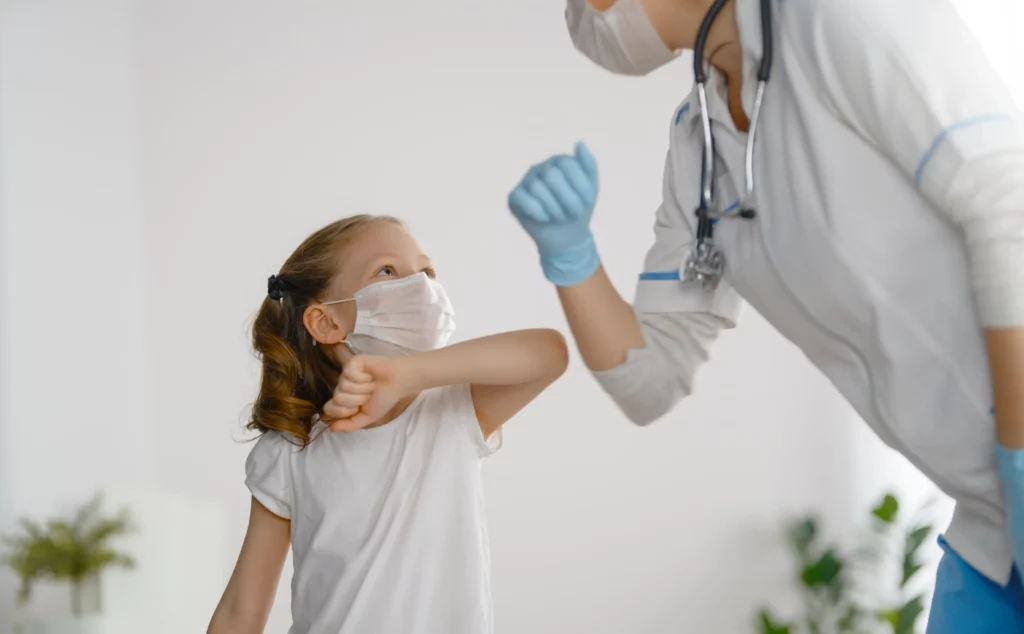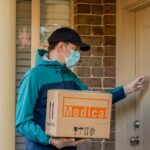
In the midst of the COVID-19 pandemic, the issue of masking has become highly controversial. While mask mandates are in effect in many public spaces, the healthcare field (mostly hospitals) across the country has been slow to implement requirements for patients and staff. This lack of universal masking poses a significant risk to high-risk patients, like those with immunocompromised conditions. In this blog post, we will explore the importance of masking in healthcare settings and the potential consequences of not taking adequate precautions.
The Vulnerability of High-Risk Patients
Liv Grace, a 36-year-old writer with a rare immune deficiency, faced a series of respiratory infections over just a few months. Each instance occurred after visits to healthcare providers, where they encountered individuals who were unknowingly carrying respiratory syncytial virus and COVID-19. Liv’s compromised immune system and inability to produce antibodies put them at a higher risk for infections. Unfortunately, hospitals and healthcare facilities can serve as breeding grounds for illnesses, including COVID-19, even when community transmission rates are relatively low.
The Need for Mask Mandates
To prevent the spread of respiratory infections within hospitals, it is crucial for healthcare facilities to implement mask mandates. While a few states have reinstated mask requirements, the vast majority of hospitals have yet to take this step. Bridging the divide between expert opinions, some healthcare professionals argue that hospitals have an ethical responsibility to protect patients from infections acquired on-site, regardless of patients’ personal choices outside of the healthcare setting.

Protecting Patients and Healthcare Workers
Studies have shown that implementing masking guidelines in hospitals not only reduces COVID-19 transmission but also decreases the prevalence of other respiratory infections, such as the flu and RSV. The Centers for Disease Control and Prevention (CDC) recommends that hospitals should consider implementing masking protocols when and if respiratory infection levels rise, particularly in urgent care and emergency rooms within the hospitals, and when treating high-risk patients. However, the CDC guidelines don’t provide specific benchmarks, leaving hospitals all over to establish their own criteria, which is a part of the problem.
Navigating the Challenges
It’s important to know that while the benefits of universal masking in healthcare facilities and hospitals is clear, hospitals must also grapple with the public backlash and the politicization of masks and how people will perceive them. There has to be a balance between patient safety and public opinion, and that can be challenging. Nonetheless, hospitals must prioritize the well-being of high-risk patients, even if it means facing resistance.
Masking is important in healthcare facilities because it helps protect high-risk patients from infections, reduces the spread of respiratory infections including COVID-19, and decreases the prevalence of other respiratory infections such as the flu and RSV.
The risks for high-risk patients in hospitals include acquiring infections like respiratory syncytial virus and COVID-19. Hospitals and healthcare facilities can serve as breeding grounds for illnesses, even when community transmission rates are low, putting high-risk individuals like those with immunocompromised conditions at a greater risk of infection.
Some hospitals hesitate to implement mask mandates due to public backlash and the politicization of masks. Navigating the challenges between patient safety and public opinion can be difficult.
The CDC recommends that hospitals consider implementing masking protocols particularly in urgent care and emergency rooms and when treating high-risk patients. However, some suggests the importance of universal masking for optimal protection, implying that partial masking in specific units may not adequately protect high-risk patients.
The CDC provides recommendations for hospitals to consider implementing masking protocols when respiratory infection levels rise, especially in specific settings and with high-risk patients. However, the guidelines do not provide specific benchmarks, leaving hospitals to establish their own criteria for mask requirements.
Conclusion
We’re all facing a potential wave of COVID-19 and other respiratory infections in general with the fall being upon us now and winter in the coming months, it is definitely crucial for hospitals to take swift action to protect high-risk patients in any way they can. Universal masking in healthcare facilities can significantly reduce the spread of infections and safeguard the well-being of vulnerable individuals which is what we all want. Fast Labs, a leading provider of bioanalytical testing services, offers convenient and efficient COVID-19 at-home tests, including the Rapid Antigen and PCR tests. Take proactive steps to protect yourself and loved ones by getting tested at Fast Labs.






